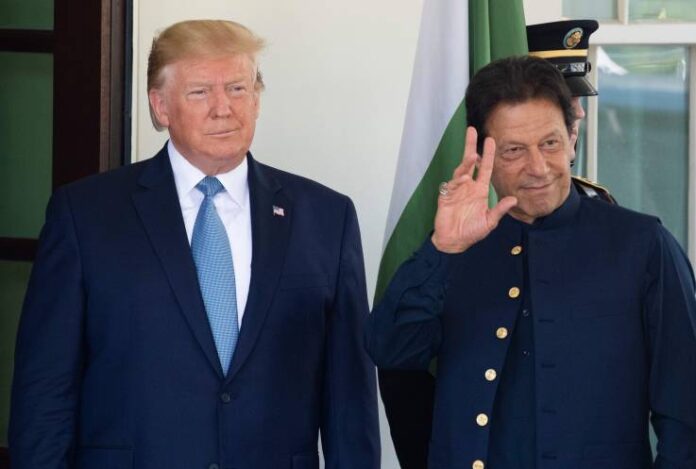
With Taliban-US talks pronounced dead, and the nay-sayer John Bolton shown the door, has Pakistan a fleeting moment to seize if it can?

Adam Weinstein, Washington DC
John Bolton, dismissed by President Donald Trump on September 10, proved to be a foreign policy ideologue more than a technocrat during his tenures across multiple US administrations, but his views on Pakistan departed from his zero-sum approach to other countries. With a focus on Iran and North Korea, Bolton desired to maintain the status quo in US-Pakistan relations.
Following the February suicide bombing that killed over 40 Indian paramilitary police, Bolton supported India’s right to self-defence but also publicly took Foreign Minister Shah Mehmood Qureshi’s promise to restrain Jaish-e-Muhammad at face value. In Afghanistan, he asserted that a military solution was the only path forward.
Last year, this blog detailed Bolton’s simultaneous admiration and suspicion of Pakistan’s military establishment, which he described as having more “loyalty to the idea of Pakistan” than its civilian leaders while also claiming that its military intelligence is controlled by radicals.
Bolton’s general position on Pakistan is widely held across Washington’s military and civilian national security establishment. Former US defence secretary James Mattis wrote in his autobiography that “I consider Pakistan to be the most dangerous [country], because of the radicalization of its society and the availability of nuclear weapons.”
Heightened concern over Pakistan’s nuclear security, a failure to distinguish between pro-state Islamists in the officer corps and anti-state extremists, and a sometimes-exaggerated perception of Pakistan’s fragility has come to define Washington’s approach to US-Pakistan relations. For its part, Islamabad’s official narrative naively maintains that a political solution in Afghanistan will stifle the region’s terrorism overnight while ignoring its own domestic realities.
The prevailing view that Pakistan’s military establishment is problematic but nevertheless keeps the will of a more radicalized society at bay prevents a full normalization of US-Pakistan relations. However, it also prevents a full disintegration of relations even when Pakistan is accused of supporting terrorism and enabling US military deaths. The freedom Pakistan’s nuclear status grants to its military establishment to take unchecked foreign policy risks such as maintaining relationships with armed non-state actors may be viewed as a benefit or liability. In the context of this dynamic, a sustained US presence in Afghanistan presents a liability as Washington and Islamabad’s vision for the future diverges and US casualties are blamed on Pakistan’s intermittent assistance to unsavoury groups including designated terrorists.
It is unclear why Bolton was suddenly fired but the timing seems to suggest that President Trump, anxious to follow up on his vow of troop withdrawal from Afghanistan, resented his opposition to a US-Taliban exit deal and a potential meeting with Iran’s President Rouhani.
President Trump’s negotiation tactics with Pyongyang and Tehran suggest that his recent foreclosure of future talks with the Taliban is indicative of very little. This presents an opportunity for Pakistan to further position itself as the mediator that Trump needs. However, this is a fleeting opportunity for the Pakistani state to advocate for its Afghanistan position and it must do so using the phlegmatic transactional language of Washington’s bureaucrats.
The Department of Defense already announced plans to increase troop levels in Afghanistan and each incident of violence carries the potential to set relations with Islamabad back. India is under scrutiny for its actions in Kashmir and its ability to advocate for its positions among Washington’s lawmakers is currently diminished.
India’s temporarily damaged reputation among Washington’s lawmakers should not be viewed as Pakistan’s gain. Relations with the two states remain relatively compartmentalized.
However, recent scrutiny of India’s intentions and the Modi government offer an opening for Pakistan to state its case on regional issues including Afghanistan. Senator Lindsay Graham’s sympathetic relationship with Prime Minister Imran Khan and his push for a free trade agreement in exchange for Pakistan’s assistance, however unlikely, helps set the stage for backdoor diplomacy.
Pakistan’s potential utility is further elevated by President Trump’s undermining of his own Special Representative for Afghanistan Reconciliation, Zalmay Khalilzad, and UN calls for negotiations between Kabul and the Taliban. Islamabad is in a unique but time-sensitive position to influence but not dictate the scope of its assistance.
The writer is a researcher focusing on law and politics in South Asia. He tweets @AdamNoahWho



